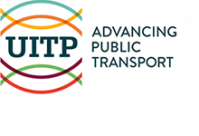Network Rail Consulting in Australia
We have been active in the Australian market since 2013 and have successfully delivered more than 70 consultancy contracts across Australia, from the East Coast to Western Australia, for public and privately owned companies and for passenger and freight owners and operators.
In Australia, we are leaders in the roll-out of the latest digital train control systems and at helping clients navigate the complexities of integrating new systems with legacy infrastructure. We also have a strong track record of providing advisory, project and program management, rail operations, maintenance and asset management advice to passenger and freight operators.
Whilst our unique selling point is our access to Network Rail's expertise in the UK, we are committed to developing our local Australian workforce through a structured training and development program using Network Rail's award-winning training capability. We are committed to improving the diversity in our workforce, both Aboriginal and Torres Strait Islander peoples and other culturally and linguistically diverse people, to enhance our delivery. This will ensure that we continue to provide our clients with leading edge technical and management advice delivered by a blend of Australian and British experts.
We acknowledge Aboriginal and Torres Strait Islander peoples as the traditional custodians and embrace them as part of the Australian identity. We respect their elders and leaders and take pride in living with the world’s oldest continuous living cultures. We value and celebrate their spiritual, cultural and physical connection to Country.
Britain has one of the highest customer satisfaction ratings of any rail system in the world and is the safest railway in Europe.
Since 2002, we’ve been part of the latest chapter in the nearly 200-year history of Britain’s railway
- 1825 saw the first passenger service using steam locomotives on the Stockton and Darlington Railway.
- In 1830 George Stephenson opened the first regular passenger service in the world, linking Canterbury to the seaside town of Whitstable.
- The 1840s were the biggest decade of railway growth. A complete network was laid down with many towns and villages having a railway connection.
- In 1883, the first electrified railway service was opened in Brighton.
- During World War Two, Britain’s railways played a key role in the transportation of troops and evacuees around the country. The then ‘Big Four’ individual railway companies joined together to effectively become one organisation.
- In 1948, Britain’s railways were nationalised to become British Railways.
- From 1965 until 1994 the railway was run under the trading name of British Rail who operated and maintained all aspects of Britain’s railways – including the trains.
- On 1 April 1994 Railtrack took control of Britain’s railway infrastructure as part of government legislation to privatise Britain’s railways. Railtrack was listed on the London Stock Exchange and the FTSE 100 list. Railtrack owned the infrastructure in the same way Network Rail does now, but maintenance and services were provided by local contractors.
- On 3 October 2002 Network Rail replaced Railtrack making it the owners of Britain’s railway infrastructure.
Rail was invented in Britain and that’s why we’re so proud to be playing our part in its modern story, honouring this legacy while delivering a better railway for Britain’s future.
We’re committed to continuing the great success story of rail in Britain, following in the spirit of engineering inspiration, innovation and determination that underpins two centuries of history.
Key Facts
Modernisation using smarter ways of working has delivered more frequent, more reliable, safer services and brighter and better stations
- Provide a safe and efficient national railway network that carries over 1.8 billion passenger journeys, 16.6 billion tonne kilometres of freight and 7 million train movements every year
- Own, maintain and operate 20,000 miles of track, 30,000 bridges, tunnels and embankments and thousands of signals
- Operate 20 major stations which handle 800 million passenger journeys and own 2,500 other stations, which are leased to train operators
- Employ 42,000 people in asset management, operations, maintenance, renewals, and enhancement projects

Network Rail Consulting is a member of ARA, the Australian Railway Association. ARA are the peak body for the rail industry throughout Australia and New Zealand. They represent an array of rail organisations: private and public, passenger and freight operators, track owners and managers, manufacturers of rolling stock, construction companies and all other organisations supplying and contributing to the Australasian rail sector. For more information on ARA go to http://www.ara.net.au/
UITP
Network Rail Consulting is a member of the International Association of Public Transport (UITP). UITP works to promote and support sustainable public transport & mobility in urban areas worldwide with a long history of more than 125 years to its name. It is the only worldwide network to bring together all public transport stakeholders and all sustainable transport modes. UITP has 1,400 member companies giving access to over 16,000 contacts from 96 countries. Members are public transport authorities and operators, policy decision-makers, research institutes and the public transport supply and service industry.
Quality Management System
Network Rail Consulting is committed to delivering high quality services to all of our clients. Accordingly, we have implemented a Quality Management System which has been independently certified as meeting the requirements of ISO 9001:20008.
Anti-Bribery Management System
Network Rail Consulting is proud of our rail-engineering heritage and our success in improving Britain’s infrastructure over the last ten years, and also of the way we do our business. Consequently, we have implemented an Anti-Bribery Management System which ensures we conduct business ethically. This has been independently certified as meeting the requirements of BS 10500:2011.



